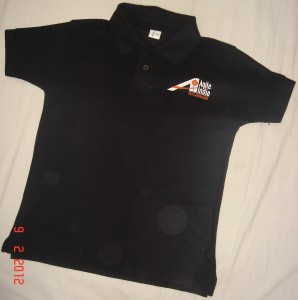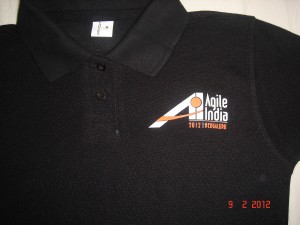`
| |
|
Wednesday, December 5th, 2012
At Agile India 2013, we are offering 14 workshops, all under one roof from 16th February to 2nd March. This is a unique opportunity to learn from experts all over the world, don’t miss out! One of the workshops we will be running is titled ‘Kanban Primer’, by Masa K. Maeda.
Masa is the creator of Lean Value Innovation, he is an internationally recognized expert on Lean and Agile Project Management, Kanban and Scrum. He started Valueinnova in the Silicon Valley California in 2008.
He has spoken at several conferences including Lean Kanban and Agile India 2012. He was one of the favorite speakers at Agile India 2012 based on the feedback we received.
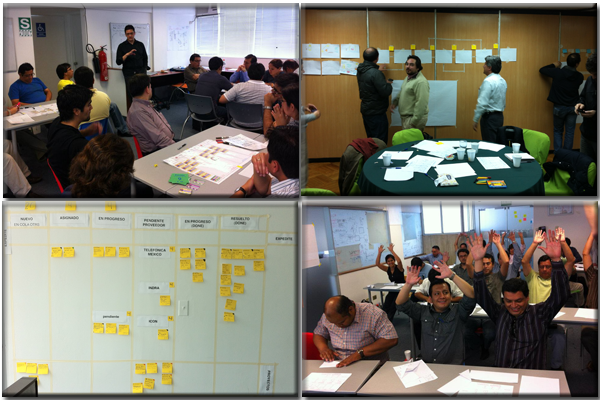
We stole some of Masa’s precious time and quizzed him about Kanban and its benefits.
1. What are key benefits of Kanban over the first generation agile methodologies like Scrum?
Kanban is a fabulous practice that is equally applicable to technical teams and to management and leadership teams. The biggest benefit of Kanban is that it brings an amazingly effective way to improve process and to generate a culture of continuous improvement with very minimal effort. It is also fun to do. It accomplishes this by being highly adaptive and improving value flow over existing processes. This is great news because it means Kanban is equally applicable to organizations doing Waterfall, Scrum, XP, or other. Yes, this means it also helps improve value generation and delivery over other agile methodologies. It also means it can be applied beyond IT and software development. Some people think Kanban is only good for IT work but that isn’t actually so. We have applied it very successfully to Software Development, Admin, HHRR, Healthcare, Education, Telecommunications, etc.
2. Is it possible to introduce Kanban into an an organization this is already practicing Scrum/XP?
Definitely yes. Kanban is compatible with other methodologies. It actually helps improve the performance of Scrum and XP teams. Kanban has been proven to actually make it easer for agile adoption to spread more easily and more quickly. One example of how it helps improve Scrum is by improving the flow of Stories and also by bringing an effective way to handle urgent tasks. For XP teams it allows to better visualize the work to do and being done, aligning better the dev-test activities as well as the UAT. In both cases it increases customer satisfaction because value delivery improves over time.
3. Who is the workshop intended for?
It is equally good for executives, managers, and team members. Executives benefit using Kanban, for example, to manage their business and customer portfolios, and by reducing time-to-market. Managers benefit because Kanban gives them visibility and predictability over projects; and by reducing delivery time through continuous improvement. Team members benefit because it increases autonomy, effectiveness, and quality. It is important to understand that Kanban is not a technical practice but rather a discipline to improve what we currently do, be it technical or managerial.
4. What is the key take away for the attendees?
This workshop will allow them to get enough knowledge to get started with Kanban. They will have the bases of its system and the method itself. This means they will be able to figure out how to create an effective Kanban board, generate the key elements to have high visualization, to do root-cause analysis and to effectively increase value flow. The workshop is highly interactive through lots of team exercises. It will be a fun day. Our training typically gets the highest scores during evaluations because of its format and because of the amount of knowledge and understanding acquired by the attendees.
Past talks:
Lean Value Innovation – Agile India 2012
Seats are limited for this workshop, book soon to avoid disappointment: http://booking.agilefaqs.com
Posted in Agile, agile india, Conference | No Comments »
Wednesday, December 5th, 2012
Kevlin Henney is an author, presenter, and consultant on software development. He has written on the subject of computer programming and development practice for many magazines and sites, including Better Software, The Register, C/C++ Users Journal, JavaSpektrum, C++ Report, Java Report, EXE, and Overload. He is a member of the IEEE Software Advisory Board. Henney is also coauthor of books on patterns and editor of ’97 Things Every Programmer Should Know’.
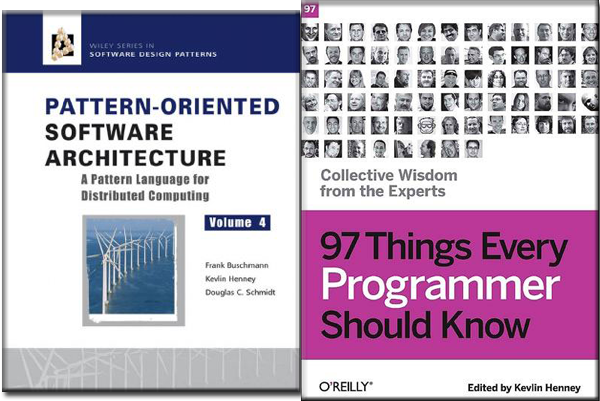
Henney has given keynote addresses at a number of conferences, including ACCU, DevWeek, Embedded Systems Club, GeeCON, GOTO, JAOO, Jfokus, NLUUG, OOP, PHPNW, SDC, Software Architect, and XP Day.
We are really excited to have Kevlin present his workshop on ‘Architecture with Agility’ at Agile India 2013.
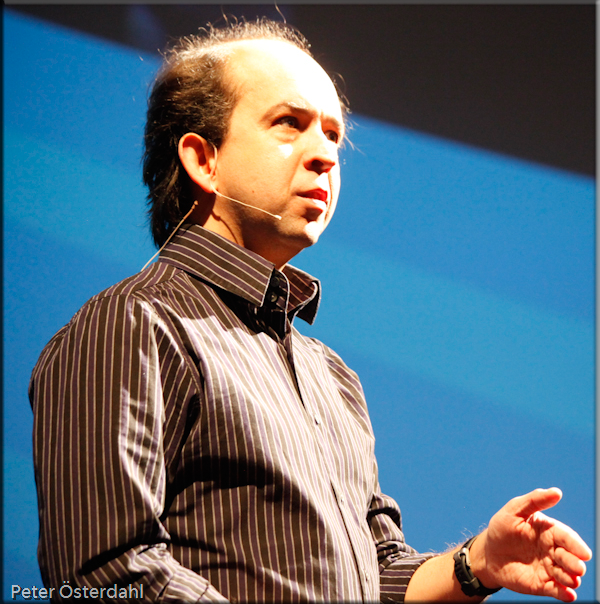
This week we interviewed Kevlin and got some more information about his workshop.
1. Agile practices talk about emergent design and iterative production, how does architecture fit into this model? Is agile architecture emergent?
Process influences and is influenced by what you build and what you can build is influenced by process. Software architecture can best be considered the set of significant design decisions, where significance relates to cost and difficulty of change. Agile projects that do not consider their architecture are not likely to remain agile for long. If an agile project focuses on delivering functionality at the expense of a design that supports incremental development, it will find itself struggling to deliver functionality.
Of course, what constitutes a significant design decision is not obvious up front, so establishing an architecture is necessarily a dynamic that flows through the whole development rather than a fixed activity locked into an early phase of development. Architecture embodies knowledge, knowledge is acquired by learning and learning takes time; a development process structures this time.
2. What are some of the misconceptions about agile architecture?
The most obvious misconception is that a good architecture will just happen and emerge miraculously from a succession of iterations, without focused responsibility and effort. Agile architecture requires guidance and nurturing, shaping a system through a succession of changes, each considered to be an experiment against a hypothesis, each considered to be open to review and change.
3. What is the key take away for the attendees from the workshop?
An architecture will constrain or enable the process of development. If you want to be agile, want to make changes frequently and sustainably, want to deliver and get feedback more often, then you need an architecture that supports rather than frustrates such a process. And, like most things in life, if you want good architecture, you have to care about it.
Past talks by Kevlin:
Kevlin’s workshop has limited seats so go ahead and book at http://booking.agilefaqs.com before it is too late!
Posted in Agile, agile india, Conference | No Comments »
Thursday, November 29th, 2012
David West has been a software professional for forty years, most recently as a consultant/coach in Agile, Design, and Enterprise-IT Integration. He is the author of Object Thinking (Microsoft Press Professional) and has been a speaker at numerous conferences including SPLASH (new OOPSLA), Onward!, Agile, and various PLoPs. He has graduate degrees in Computer Science, Cultural Anthropology, and Cognitive Science along with an undergraduate education in Asian Philosophy.
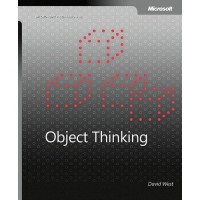
He believes in people, not technology or methodology. He has a wealth of experience in achieving systemic change and IT-Enterprise integration while significantly, reducing IT costs.
We are very privileged to present David’s workshop on ‘The Agile Enterprise‘ at Agile India 2013. His many years of experience will no doubt add immense value to the conference.
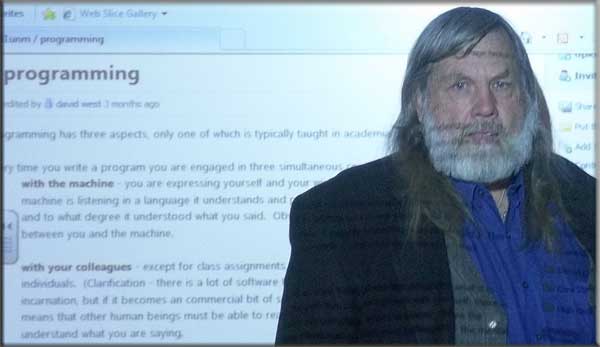
We asked David some questions about his workshop. A key focus of the workshop will be about breaking down the silos that exist between IT and business.
Why is it important to break down silos that often exist between IT and business?
There are two important reasons. The first arises from the four agile values (originally XP values) – two of which, Communication and Feedback – mandate the free flow of information “in real time.” By real time, I mean the time frame in which the work is being done. There is nothing more frustrating than having to wait for a question and answer to go through channels, when a direct communication could resolve the issue and allow you to proceed with your work. If you look at all the agile practices, most of them are intended to enhance communications among the Whole Team.
The second reason is not as easy to see. We have known since the 1960s of the problem of “necessary interpretation.” An example: The business person articulates some needs and expectations – requirements – to the systems analyst. This is done using some kind of ‘formal’ model. The model cannot contain all of the understanding of the business person, tacit knowledge is omitted, for example. The system analyst must interpret the model, using her own mental language and translate the requirements into specifications, again omitting much of what she knows from her formal model. The programmer must, yet again interpret the specifications and translate into their mental language (which is a function of the particular programming language used) and write their code. This chain of interpretation and translation consistently generates software that bears only a partial resemblance to what was expected. The more links in the chain – the more silos you pass through – the greater the divergence.
In your experience, what makes it really hard to break down these silos?
Business, and to an even greater degree Software Engineering, are grounded in a philosophy of “scientific management.” This is a cultural phenomenon which means we are not even aware, usually, of why we do things the way we do. Scientific management principles focus on formality, constraint, and control. In communications this takes the form of establishing formal communication channels, defined formats for communication (formal models like UML), and limits on how many people any individual should manage and therefore communicate with. Add a strict hierarchy, and you get lots of silos. This is justified with arguments like, “you cannot have everyone talk to the CEO, she would not have the time to read and respond.” This entire culture of scientific management extends beyond the IT shop and the business and makes it extremely hard to change – even with awareness.
What will be the key take away for the workshop attendees?
Participants will leave with a simple and extremely powerful model of the enterprise; useful for integrating IT efforts with business objectives, mapping agile practices to the satisfaction of business needs – all while providing a foundation for leveraging IT to support an agile and innovative organization.
If you’re thinking of registering for this workshop, do remember that seats are limited. Book soon to avoid disappointment. http://booking.agilefaqs.com
Posted in Agile, agile india, Conference | No Comments »
Monday, November 12th, 2012
This is the second in the series of posts that we will be doing for workshops taking place at Agile India 2013. The next workshop we are focusing on is “Honing Technical Practices To Realize Sustainable Agility” by Venkat Subramaniam.
Venkat is founder of Agile Developer, Inc. and has trained and mentored thousands of software developers in the US, Canada, Europe, and Asia. He is also an award-winning author and has written several books including: ‘NET Gotchas’ and ‘Practices of an Agile Developer’ (winner of 2007 Jolt Productivity Award). He is a regular invited speaker at several international conferences.
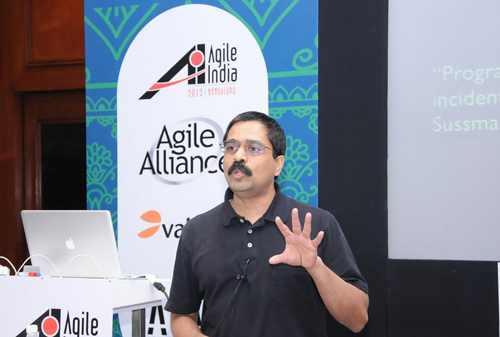
We feel quite privileged to have him present several talks and also this workshop at Agile India 2013. He was one of the favorite speakers at Agile India 2012 based on the feedback we received. Also his video from Agile Inida 2012, was the most viewed video online.
While Venkat was traveling around the world attending conferences, we stole some of his time and asked him a few questions about his workshop.
What’s the take away for the attendees from the workshop?
Learning practical technical practices to sustain and succeed with agile development.
Agile development is really feedback driving development. Many organization and teams are really excited and focused on succeeding with agile development. They have aggressively adopted various management practices. While this is good and essential, it is not sufficient.
In addition to receiving feedback, the team has to respond quickly and effectively to the feedback received. In addition to right intentions, the team needs to have the technical ability to respond to change. It is hard to be agile if our code sucks. Having high quality code and quickly running automated tests, can help respond to those feedback and keep the response cycle running smooth.
Management practices (and the management support) are like the left wheels of a car. Technical practices (and the support from programmers and testers) are like the right wheels of a car. For a stable sustainable progress these wheels have to be aligned.
Programmers serious about improving their technical skills to support agile development on their projects or for the companies will benefit from this workshop. They will learn specific skills that have impact on their ability to respond to change and support their teams. They will learn how to create lightweight, evolutionary design, how to recognize and evaluate such design, to refactor code, write useful unit tests, create effective mocks, and how to practically create continuous integration feedback loops.
I invite programmers to bring their computers, roll up their sleeves, pair up with fellow practitioners, get their hands dirty with code and design, and hone their technical skills through this workshop. There is very little theory in this workshop, its all about learning by doing.
What are some of the main topics covered in the workshop?
- Agile development and sustainability
- Cost of technical practices
- Driving design using automated tests
- Evolutionary architecture
- How to make good use of mocks to aid unit testing?
- How and when to refactor code?
- Practicals of continuous integration
Are there specific tools or languages that you plan to focus on?
There is strong influence of programming languages and automated tools in this workshop. However, programmers have the flexibility to use the language they’re most comfortable with or relevant to their work. I can comfortably program in about 8 languages, which includes the main stream languages, so should be able to assist the programmers with specific questions and also compare and contrast approaches based on language influences.
Who’s the workshop intended for?
Programmers passionate and genuinely interested in improving their technical skills to support their organization’s agile development efforts.
Links to some talks/presentations by Venkat:
http://blog.agiledeveloper.com/2012/01/collections-of-presentation-videos.html
Posted in Agile, agile india, Conference | No Comments »
Friday, November 2nd, 2012
We have a number of exciting workshops that are taking place during Agile India 2013 conference. One of the workshops that we are really excited about is ‘The Fastest Learner Wins‘ by Mary and Tom Poppendieck.
Both Mary and Tom are well known writers and speakers and probably need no introduction. Mary will be soon launching her new book ‘The Lean Mindset’ and will be sharing her some of her learnings during the course of this workshop.
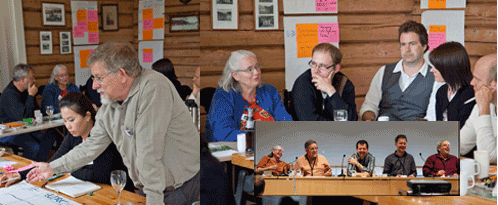
We recently caught up with Mary and Tom and asked them a few questions to get a deeper understanding of what their workshop is about.
What does the title of your workshop ‘The Fastest Learner Wins’ mean?
Speed matters. Learning matters. Design matters. Speed, learning, and design – correctly balanced – are unbeatable.
Once upon a time, a company could hold on to its markets by doing what it had always done well. But today, a small group of smart people with a good idea can start up a new business anywhere in the world; they can leverage the internet and cloud computing to enter a market with a minimum amount of capital in a surprisingly short time. At first, these small upstarts are not seen as a threat by companies already in the market. But over time, the successful newcomers learn quickly and surprisingly often they have taken over whole markets with better, faster, cheaper offerings. The incumbents, caught in their successful past, usually find it’s too late to react.
What are the main ingredients that allow large companies to be able to sustain growth over time?
The average lifespan of a successful US company is about 15 years – much shorter than a career. This amazing fact might cause you to ask yourself: How can my company thrive over the long term? The answer is: Expect change and adapt to it. Our current organizations are strongly incentivized to continue doing whatever they have been doing in the past. But as companies grow large and the world changes, the only real path to sustained growth is innovation. The most innovative companies have learned to change their focus:
- From productivity to impact
- From predictability to experimentation
- From scalability to decentralization
- From making money to making a difference
What will be the key take away for the workshop attendees?
Attendees will learn strategies for improving their companies in the areas of:
1. Innovation
In a world where natural disasters and economic shocks have become routine, only the fast and flexible survive. Wise organizations devolve decision-making to the people who deliver value, sparking initiative and fostering innovation.
2. Design
If there is one thing we know, it’s that the consumer experience matters. Savvy organizations focus on the whole product and care deeply about the consumer experience. They balance empathy with data to deliver the WOW factor.
3. Learning
It is difficult for companies to innovate at the pace and scale of the market. Learning organizations run lots of experiments and keep what works. They leverage disciplined speed, system-level feedback, and validated learning.
4. Mastery
Great organizations set out to make a difference. They seek challenge rather than predictability. They foster effort over entitlement, mastery over success. They are disciplined, determined, and honest. And they keep on getting better.
Target Audience for workshop:
Managers, team leads, product owners, product managers, coaches – anyone who would like to rethink how to create winning products.
Some past talks by Mary:
2011 Agile and Beyond Conference – Opening Keynote – Mary Poppendieck
Competing on the basis of speed
Please do remember seats for this workshop are limited so book soon to avoid disappointment. http://booking.agilefaqs.com
Posted in Agile, agile india, Conference, Organizational | 1 Comment »
Tuesday, March 13th, 2012
After uploading various videos from the Agile India 2012 conference, I was looking at some reports in YouTube. 2 Reports particularly caught my interest.
Demographics
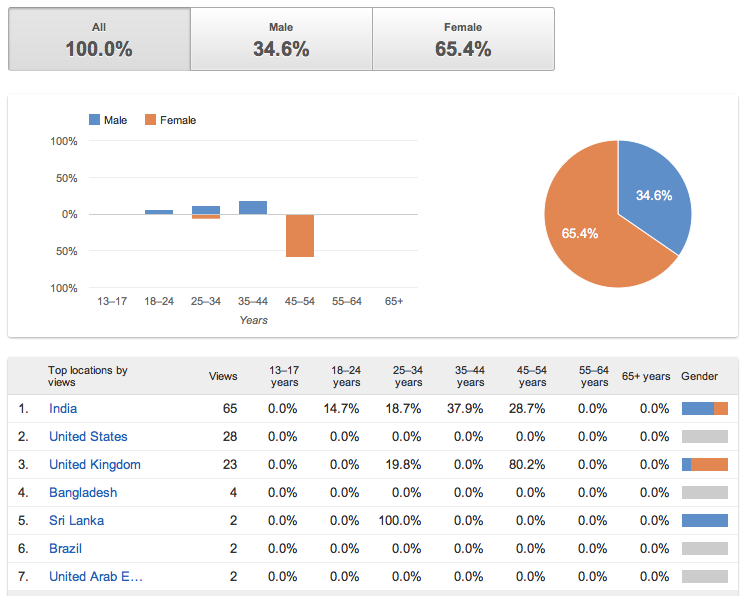
India shows a large number of male viewers with a fairly average distribution across between age groups. While UK has a very large number of female viewers all in the 45-54 years age bracket.
(For some reasons, no demographics info are displayed for US.)
Audience retention

This reinforces my thinking that very few people watch conference videos online for more than 5 mins. (However they will enjoy the same talk if it was in-person.)
Would be interesting to find a way to distill any talk to under 5 mins.
Posted in Agile, agile india, Metrics | No Comments »
Tuesday, February 14th, 2012
Posted in Agile, agile india, Conference | No Comments »
Monday, February 13th, 2012
The Agile India 2012 Conference is fully sold out.
When we finished we had professionals with 337 unique Roles from 228 different Companies worldwide registered.
Following is the profile of the registered participants:

Companies
| 3i Infotech Limited |
ACS ( Xerox GTOD) |
ADP Pvt Ltd |
| APMG |
APMG India |
APMG International |
| Accelrys |
Accenture India |
Accept Software Corporation |
| Aconex |
Aegisoft |
Agical |
| Agile Alliance |
Agile Coaching DK |
Agile Developer, Inc. |
| AgileFAQs |
Agilni Associate |
Alcatel Lucent |
| Allscripts India Pvt. Ltd. |
Amazon |
American Express India Pvt Ltd |
| Atlas Systems Pvt. Ltd. |
Atlassian |
Axiaware |
| Azri Solutions Pvt Ltd |
BBC |
BEA |
| BMC Software |
BNP Paribas |
BSkyB |
| Bankwest |
Beumer Technologies |
C42 Engineering |
| C4Media/InfoQ.com |
CA Technologies |
CDC Software India Pvt Ltd |
| CDC Software Pvt. Ltd. |
CSC |
Canopus Consulting |
| Catalign Innovation Consulting |
Ceezone |
Cerner HealthCare |
| Ciber |
Cisco Systems |
Citrisys Solutions |
| Citrix Online |
CoStrategix Technologies |
Cognizant Technology Solutions |
| CollabNet |
Collabera Solutions |
Conscires Agile Practices |
| Corporation Services Company |
Crafitti Consulting Private Limited |
Crisplant A/S |
| Culturewise |
DSS |
Deinersoft, Inc. |
| Dell International Services India Pvt Ltd |
Digiata |
Digite Inc |
| EDS |
EMC Corporation |
Echidna Software India Pvt.Ltd |
| Emerson Process Management |
Ennova |
Equal Experts |
| Evoke Technologies |
Exelplus Services |
Exilesoft (Pvt) Ltd. |
| FICO |
FIL India Business Services |
FORD TECHNOLOGY SERVICES INDIA |
| Fareportal |
Fidelity Business Services |
Fred George Consulting |
| Free Lancing |
Freeset Bags & Apparel |
GE Energy |
| GE Healthcare |
GE India Industrial Pvt. Ltd. |
Gama-Tech |
| General Electric |
Geodesic Ltd |
Goa University |
| Goldman Sachs, Inc. |
Growth Matrix Pvt Ltd |
HCL Technologies |
| HP |
Harman International |
Hewlett Packard |
| Host Analytics Software Pvt Ltd |
Huawei Technologies India Pvt. Ltd. |
IBM India |
| IBM Rational |
ITC Infotech |
Impetus Infotech (I) Pvt. ltd. |
| InMobi |
Indecomm Global Services |
Independent |
| Infosys Ltd |
InsideView |
Intel Corporation |
| Investopresto |
Invision Inc. |
Invoscape Technologies Pvt. Ltd. |
| John Deere Techcnology Center |
July Systems |
Jyske Bank |
| KPIT Cummins India Ltd |
Keio University |
L&T InfoTech |
| Le directeur général des élections du Québec |
Lean A-to-Z |
Legislative Assembly of Ontario |
| MP Consulting |
Maas360(By Fiberlink) |
Matrix Energy Solutions |
| Mazata Ltd |
McKinsey & Co. |
Microsoft Corporation |
| Miles AS |
MindTree Ltd. |
Misys Software |
| Mobisy Technologies |
Monsanto IT |
Moolya |
| Motorola Solutions |
Mphasis Ltd. |
Multunus Software Pvt. Ltd. |
| Mutual Mobile |
NDS Services Pay TV |
NIIT Technologies |
| NXP Semiconductors India Pvt Ltd |
Napa Software Services India Pvt Ltd |
National Instruments |
| Navteq India Pvt. Ltd. |
Ness Technologies |
Nokia India Pvt ltd |
| Nokia Siemens Networks |
Nokia L&C |
Nomura |
| Northern Star Consulting |
Novell |
Ostrya Labs |
| PMI |
PTC Software (India) Pvt Ltd, Pune |
Pegasystems |
| People10 |
Persistent Systems Ltd |
Philips |
| Pitney Bowes |
Pitney Bowes Software India |
Practice Agile |
| Pragati Software Pvt. Ltd. |
Projectplace |
Prologic |
| Proworx Software Solutions Pvt. Ltd |
QAI INDIA LTD. |
Rally Software |
| Red Hat |
Robert Bosch India Limited |
Robert Gordon University |
| Rotary International Infotech Pvt.Ltd. |
S.i. IT Consultancy Services (India) Pvt. Ltd. |
SAP Labs India Pvt. Ltd |
| SCRUMguides |
SITA |
SM Netserv |
| Sabre Travel Technologies Pvt Ltd |
Sapient |
Sasken Communications Tech |
| Schneider-Electric India Pvt Ltd |
Siemens Information Systems Ltd. |
Silver Stripe Software |
| Simpthings |
SlideShare Inc |
Societe Generale |
| Société Internationale de Télécommunications Aéronautique |
SolutionsIQ |
SpiderLogic India Pvt Ltd |
| Stixis Technologies |
Surpetition |
Symantec Corporation |
| Symbol – A Motorola Solutions Company |
Symphony Services |
Synergy Technology Services |
| Synerzip |
Tata Consultancy Services |
Tata Elxsi |
| Taucraft Limited |
Techmahindra |
Telerik AD |
| Tesco Hindustan Service Center |
The Open University |
The University of Auckland |
| Thomson Reuters |
ThoughtObjectz |
ThoughtWorks Technologies |
| Trigyn Technologies Ltd |
Tyto Software Pvt. Ltd. |
Unisys Global services |
| University Of Delhi, India |
University of Economics, Prague |
University of Southampton |
| VVM’s, Shree Damodar College Of Commerce & Economics |
Valtech |
Value Source Pvt Ltd |
| Valueinnova LLC |
Verisign Services India |
Victoria University of Wellington |
| Vistaar Technologies |
Westboro Systems |
Wipro Technologies |
| Xebia IT Architects India Pvt Ltd. |
Xicora Consultants |
YAssume Software Technologies Pvt. Ltd. |
| Yahoo Inc. |
Yodlee Infotech Pvt Ltd. |
ZS Associates India Pvt. Ltd. |
| aponi Limited |
eBay |
eGain Communications Pvt. Ltd. |
| ePlan Services |
factor10 |
i-flex solutions limited |
| iDIA Computing, LLC |
iPass Inc |
isense |
Role/Profile
| .NET Editor |
ACEO |
AGM |
| APMG Employee |
APMG India |
AVP |
| Advanced Software Engineer |
Advisor to President |
Advisory Software Engineer |
| Agile COE Lead |
Agile Coach |
Agile Coach & Principal Process Consultant |
| Agile Coach / Trainer |
Agile Coach and Consultant |
Agile Coach and Trainer |
| Agile Consultant |
Agile Consulting Coach |
Agile Practitioner |
| Agile Product Guy |
Agile Product Owner |
Agile Program Director |
| Agile Program Office |
Agile Software QA |
Agilist |
| Agility Lead SYNGO US |
Application Developer |
Architect |
| Area Product Owner |
Assistant Manager |
Assistant Professor |
| Associate |
Associate Architect |
Associate Consultant |
| Associate Director |
Associate Director- Web Technology |
Associate Lead |
| Associate Lead Software |
Associate Manager |
Associate Manager – Quality |
| Associate Manager – Quality Assurance |
Associate Manager, Software Development |
Associate Professor |
| Associate Project Manager |
Associate Vice President – Technology |
Asst. Vice President |
| Branch Manager |
Build Engineer |
Business Analyst |
| Business Development Coordinator |
Business Development Executive |
Business Development Manager |
| Business Intelligence Architect & Deve Manager |
Business Solutions |
Business analyst |
| CEO |
CEO and MD |
CEO and Principal Consultant |
| CEO, Agile coach |
CIO |
COO |
| COO & Co-founder |
CRM Architect |
CTO |
| CTO/VP |
Chair |
Chief Architect |
| Chief Methodologist for IT |
Chief Project Officer |
Chief Solution Architect |
| Chief Technologist |
Chief Technology Officer |
Chief project manager |
| Co-founder and solutions architect |
Communications Manager |
Consultant |
| Consultant / BA |
Consultant Architect |
Consultant Senior |
| Corporate Communications Executive |
Country Manager |
Dash |
| Delivery Manager |
Delivery Manager – Development Process & Tools |
Delivery Manager – Technical Offshoring & Outsourcing |
| Deliviery Manager |
Developer |
Developer / Consultant |
| Development Head |
Development Manager |
Director |
| Director – Business Development |
Director – Engineering |
Director – PMO |
| Director – Products |
Director – R&D |
Director Development |
| Director Of Engineering |
Director and Consultant |
Director of Engineering |
| Director of IT Development |
Director, Product Development |
Director, Program Management |
| Director, Software Development |
Director-Engineering |
Domain Manager – PlantSolution Software |
| Employee |
Engagement Leader |
Engineer |
| Engineer – Research & Development |
Engineering Manager |
Enterprise Architect |
| Executive – Engineering |
Expert Business Analyst |
Founder |
| Founder / Agile Project Manager |
Founder Director, Co-Crafter |
Founding Partner |
| GM |
General Manager |
General Manager – IT Services |
| Global Operations Director |
Group Leader, Product Management |
Group Manager – Consulting |
| Group Quality Manager |
HR |
HR Assistant |
| Head – Define Team |
Head – IT, Defense , Aerospace |
Head – India Consulting |
| Head – Microsoft & Agile Transformation Services |
Head – Quality Function |
Head – Sales |
| Head – Technical |
Head Delivery |
Head Engineering International Grocery Home Shopping |
| Head of Customer Care Department |
Head of Development Center |
Head of Engineering |
| Head of Project Management |
Head of R&D |
Head of Technology |
| Head, PMO |
IT Analyst |
IT Project Manager |
| IT Senior Project Manager |
India Country Manager |
Knowledge Architect |
| Lead |
Lead -Testing and Lean |
Lead Architect |
| Lead Business Analyst |
Lead Consultant |
Lead Engineer |
| Lead Program Integrator |
Lead Project Manager |
Lead Software Engineer |
| Lead System Designer |
Lead Technologist |
Lead software developer |
| Lead-QA |
Lean-Agile Coach/Consultant, Technical Leader |
Lecturer |
| Lecturer of Software Engineering |
Liaison Officer |
Management Consultant |
| Manager |
Manager – Credential |
Manager – Quality Assurance and Process |
| Manager – Software Development |
Manager Development |
Manager Engineering |
| Manager, Quality Engineering |
Managing Director |
Marketing |
| Member Technical Staff |
Member Technical Staff(MTS) |
NDS Services Pay TV Technology Pvt. Ltd |
| Operations Leader |
Operations Manager |
Owner |
| PM |
PMO |
PMO (HR) – Deputy Manager |
| Partner |
PhD Research Student |
Practice Manager |
| President |
Principal |
Principal Agile Coach |
| Principal Architect |
Principal Consultant |
Principal Consultant and Agile Coach |
| Principal Engineer |
Principal Engineer, Product Management |
Principal Program Manager |
| Principal Project Manager |
Principal Research Scientist |
Principal Software Engineer |
| Principle Software Engineer |
Process Manager |
Product Manager |
| Product Operations Manager |
Product Owner |
Product Owner/Program Manager |
| Program Director |
Program Integrator |
Program Manager |
| Program Manager International Grocery Home Shopping |
Project Associate |
Project Engineer |
| Project Lead |
Project Leader |
Project Management Lead |
| Project Manager |
Project Manager – Operations |
Project Manager / Scrum Master |
| Project lead |
Punk Programmer |
QA Engineer I |
| QA Manager |
QE Lead |
Quality Assurance Manager |
| Quality Manager |
Quality Officer |
R&D Lead Program Manager |
| R&D Senior Software Engineer |
R&D Senior Test Engineer |
R&D Software Engineer |
| R&D Test Engineer |
Recruitment |
Research Scholar |
| SVP Products & CPOACCEPT |
Scrum Coach |
Scrum Master |
| Scrum master |
Scrum of Scrums Master |
Senior Advisory Software Engineer |
| Senior Analyst |
Senior Application Architect |
Senior Consultant |
| Senior Consultant – Devops |
Senior Consultant Developer |
Senior Delivery Manager |
| Senior Developer / Consultant |
Senior Director Quality Engineering |
Senior Director, Business Operations |
| Senior Director, Software Engineering |
Senior Engineer |
Senior Engineer – Testing |
| Senior Engineer I |
Senior Engineering Manager |
Senior Lead |
| Senior Manager |
Senior Manager – Conltancy |
Senior Manager – Delivery |
| Senior Manager – Projects |
Senior Manager – Quality |
Senior PO/Agile leader |
| Senior Product Owner |
Senior Program Manager |
Senior Project Engineer |
| Senior Project Leader |
Senior Project Manager |
Senior QA Consultant |
| Senior Quality Engineer |
Senior Quality Manager |
Senior Research Associate |
| Senior Researcher |
Senior Software Architect |
Senior Software Developer |
| Senior Software Engineer |
Senior Software Group Manager |
Senior Software Manager |
| Senior Staff Software Engineer |
Senior System Analyst |
Senior System Specialist |
| Senior Systems Analyst |
Senior Systems Specialist |
Senior Team Lead |
| Senior Technical Architect |
Senior Technical Consultant |
Senior Technical Leader |
| Senior Technical Manager |
Senior Technical Specialist |
Senior Test Consultant |
| Senior VP – Product |
Senior Vice President |
Senior consultant |
| Senior software engineer |
Services India Leader |
Software Architect |
| Software Developer |
Software Engineer |
Software Engineering Lead – Applications |
| Software Group Manager |
Software Manager |
Software Technical Leader |
| Software project manager |
Solution Architect |
Solutions Architect |
| Solutions Manager |
Staff Project Engineer |
Staff QA Engineer |
| Student |
Supervisor Software Development |
Supervisor Software QA Engineering |
| Systems Analyst |
Systems Architect |
Systems Engineer |
| Team Lead |
Team Leader |
Team Manager |
| Tech Fellow, Product Management |
Tech Lead |
Tech Manager |
| Tech Support Manager |
Tech lead Quality engineering |
Technical Analyst |
| Technical Architect |
Technical Consultant |
Technical Director |
| Technical Lead |
Technical Manager |
Technical Project Leader |
| Technical Project Manager |
Technology Analyst |
Technology Consultant |
| Technology Manager |
Technology Specialist |
Test Lead |
| Test Management Consultant |
VP Production Control |
Vice President |
| Vice President – Global Agile Strategies |
Vice President – Human Resources |
Vice President – Value Engineering |
| Sales Consultant |
Total Number of Participating Countries = 21
| Country |
Count |
| Australia |
9 |
| Belarus |
1 |
| Belgium |
2 |
| Brazil |
3 |
| Canada |
8 |
| Czech Republic |
1 |
| Denmark |
2 |
| France |
1 |
| India |
606 |
| Indonesia |
1 |
| Ireland |
1 |
| Italy |
2 |
| Japan |
1 |
| New Zealand |
2 |
| Norway |
2 |
| South Africa |
2 |
| Sri Lanka |
4 |
| Sweden |
2 |
| Ukraine |
2 |
| United Kingdom |
15 |
| United States |
40 |
Posted in Agile, agile india, Conference | No Comments »
Sunday, February 12th, 2012
Front
For the print on the back, we have 2 options. Which one do you prefer?
| Letter A |
Green |
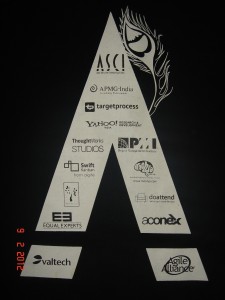 |
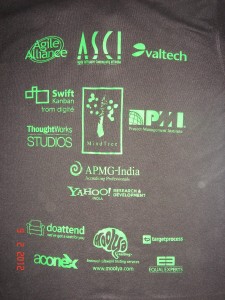 |
Posted in Agile, agile india, Conference | 1 Comment »
|












